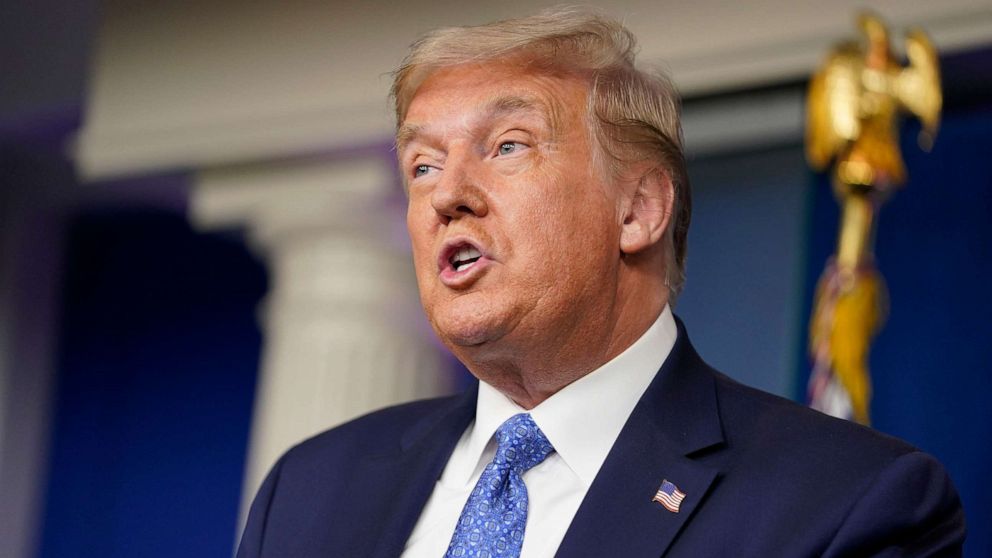As coronavirus cases surge, Trump says he's 'comfortable' sending son, grandchildren back to school
President Donald Trump on Wednesday led a news conference focused on the coronavirus crisis for the second day in a row and opened his prepared remarks with a message to senior citizens before addressing a wide-range of topics, including sending his son back to school amid the pandemic and deploying federal troops to American cities.
"I want to send a message of support and hope to every senior citizen who has been dealing with the struggle of isolation in what should be the golden years of your life. We will get to the other end of that tunnel very quickly, we hope," he said. "The light is starting to shine."
ABC News Chief White House Correspondent Jonathan Karl asked the president about sending his son and grandchildren back to school.
In response, Trump said, "I am comfortable with that."
Trump falsely said that his administration had a "national strategy" for schools reopening, when in reality the federal government -- the White House and the Centers for Disease Control and Prevention -- has provided different layers of guidance to schools, rather than some national strategy or plan. Instead, on the details of schools reopening, the administration has largely punted to state and local officials.
"We do have a national strategy, but as you know, ultimately, it's up to the governors of the states," Trump said.
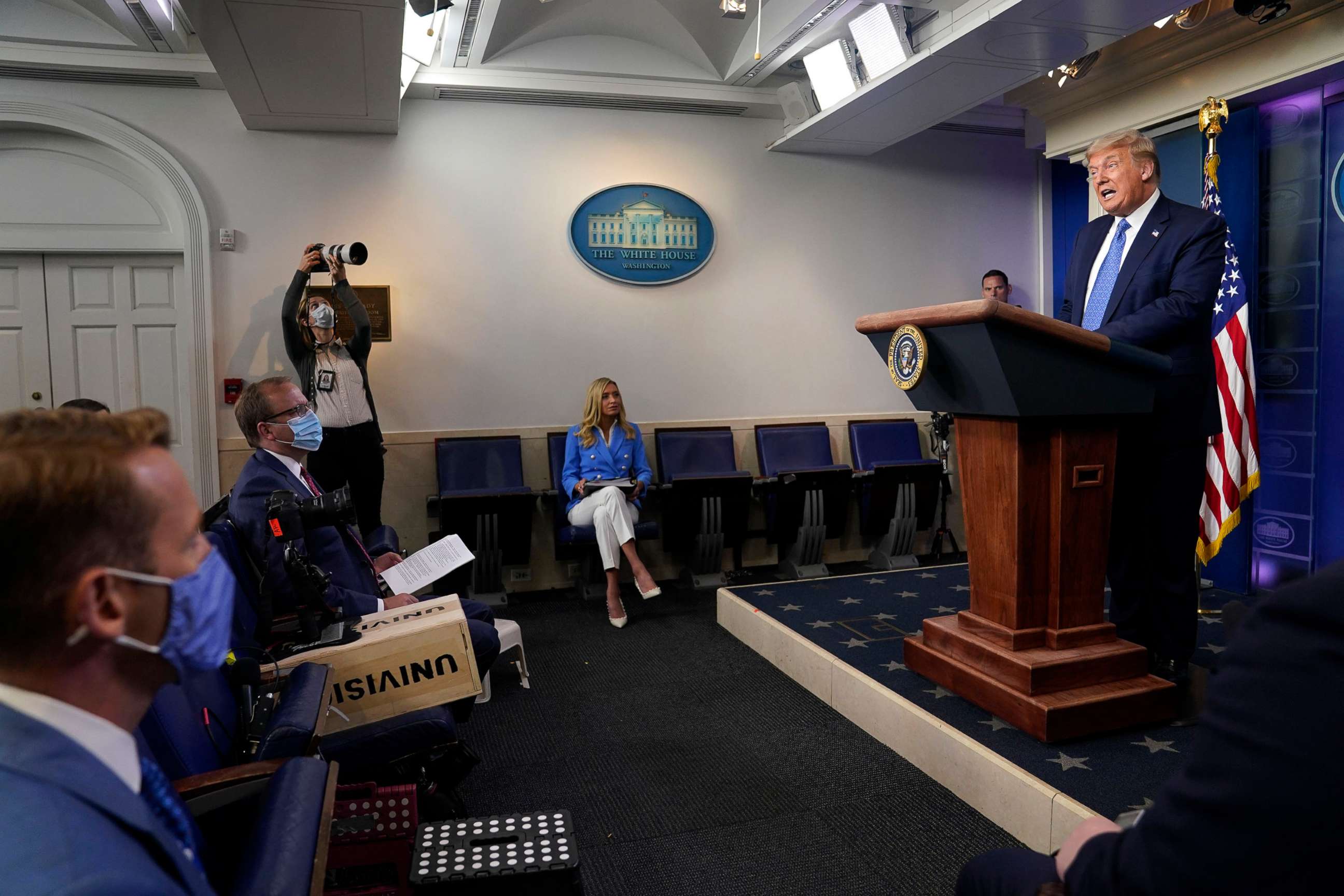
In a follow-up question, Karl noted children who go to school can bring the virus back to home and some live with their grandparents -- "there's a real risk."
"Well, they do say that they don't transmit very easily, and a lot of people are saying they don't transmit, and we're studying, Jon, very hard, that particular subject, that they don't bring it home with them," he said. "Now, they don't catch it easily. They don't bring it home easily, and if they do catch it, they get better fast. We're looking at that fact. That is a factor, and we're looking at it strongly."
White House coronavirus response coordinator Dr. Deborah Birx has previously said the issue of how contagious kids are needs more study. Soon after the briefing, she appeared on Fox News and was asked about the president's claim.
"There's still open questions there, and that's why the president concluded with, 'we're studying this very hard,'" she said.
Birx said a study in South Korea suggested that children under 10 transmit the virus less, "but I think it needs to be confirmed here."
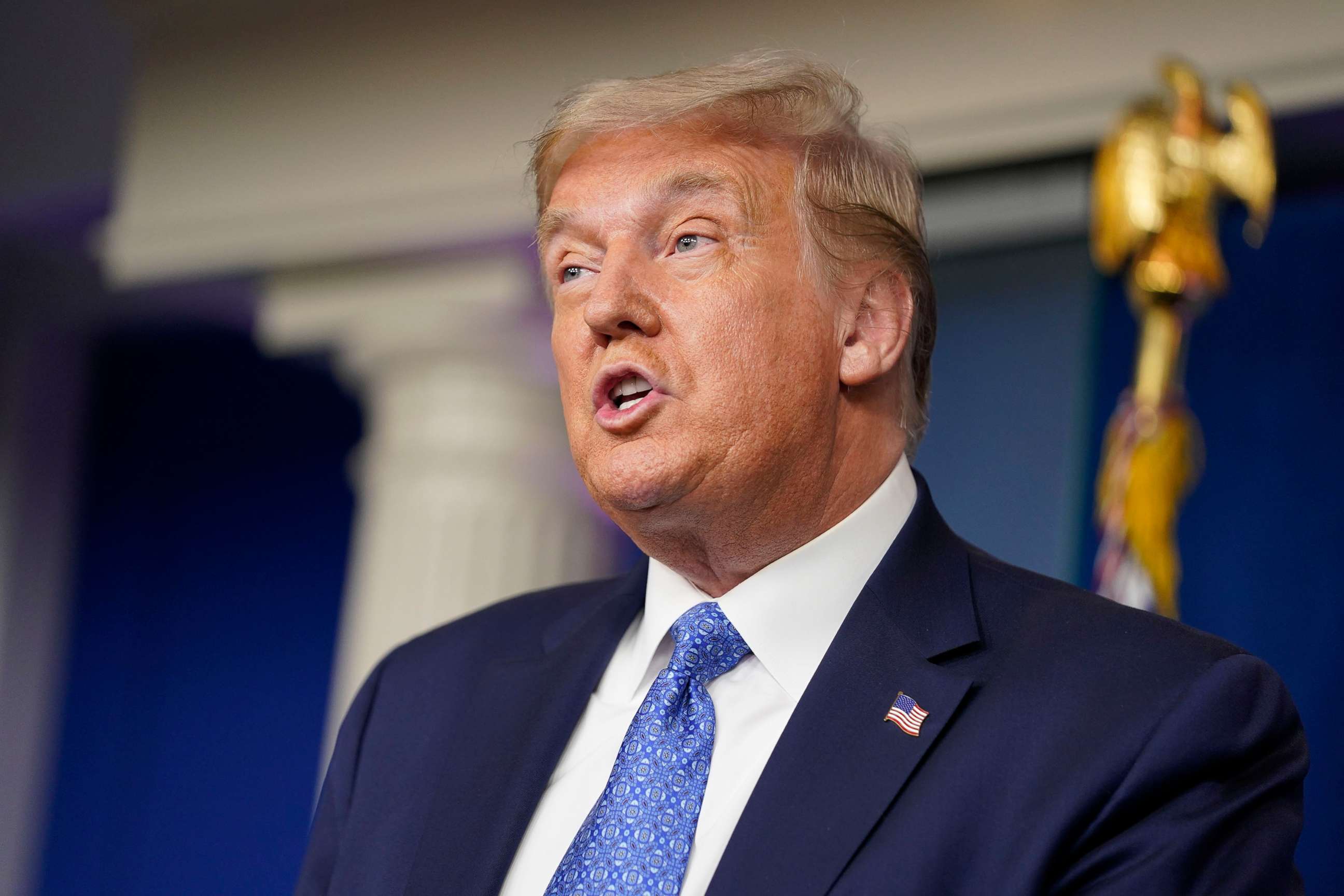
The return to the coronavirus-related briefings comes amid sinking poll numbers and mounting criticism for his approach of trying to move beyond the pandemic even as the number of cases continue to surge.
The president again appeared without task force doctors or public health experts, though he said again that Birx was "just outside" the room.
Asked why they no longer appear with him at his briefings, Trump said it's "because they are briefing me."
"And they're giving me all of -- everything they know as of -- as of this point in time, and I'm giving the information to you. And I think it's probably a very concise way of doing it," said Trump. "It seems to be working out very well."
Despite months of not modeling the behavior himself, the president continued to endorse masks and social distancing on day two of his renewed coronavirus briefings.
"Wear a mask, socially distance and repeatedly wash your hands," Trump said. "Wash your hands often. I am finding more and more people are saying wash your hands. So wash your hands."
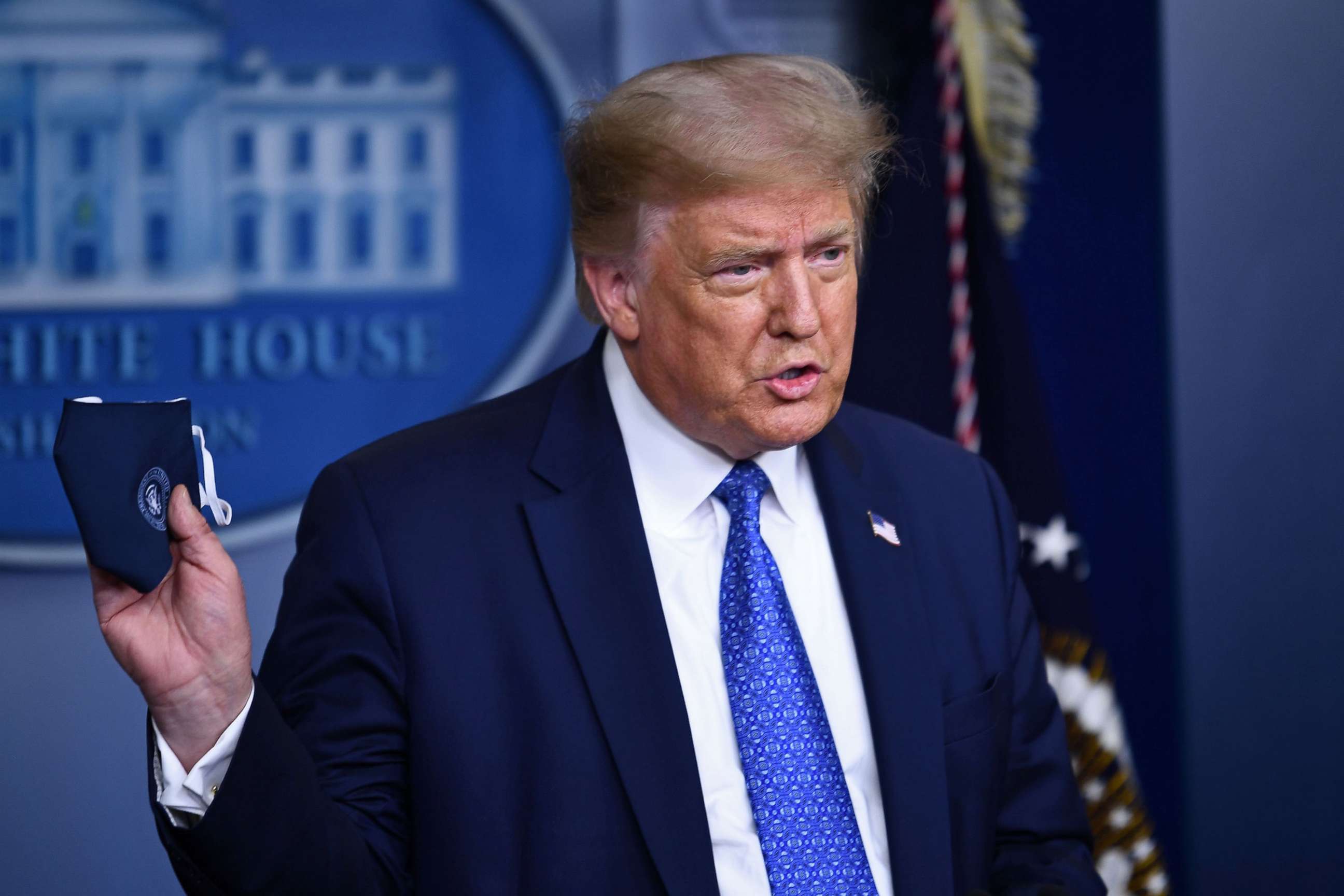
Trump ticked off a list of on-script "additional actions" his administration is taking to ramp up testing in nursing homes, including devoting $5 billion already appropriated by Congress to implement a national training program and provide technology to enable family visits.
He also said the administration will begin requiring, rather than recommending, that all nursing homes in states with a 5% positivity rate or greater test all nursing home staff each week. The announcement comes as testing labs across the country report equipment shortages and major delays in reporting results.
The president went on to attribute increased cases overall to gatherings on Memorial Day and young people congregating at bars.
Notably, Memorial Day gatherings occurred after the president spent the month of May pressuring governors to reopen their states, despite warnings from experts that exactly such an outbreak would happen.
He also praised the country's growing border wall with Mexico for helping "greatly" to keep the virus out.
"We're also sharing a 2,000-mile border with Mexico as we know very well, and cases are surging in Mexico unfortunately," he said. "It was really meant for a different purpose, but it worked out very well for what we are doing right now and for the pandemic."
The U.S. ranks third in coronavirus fatalities per capita while Mexico ranks sixth, according to Johns Hopkins University.
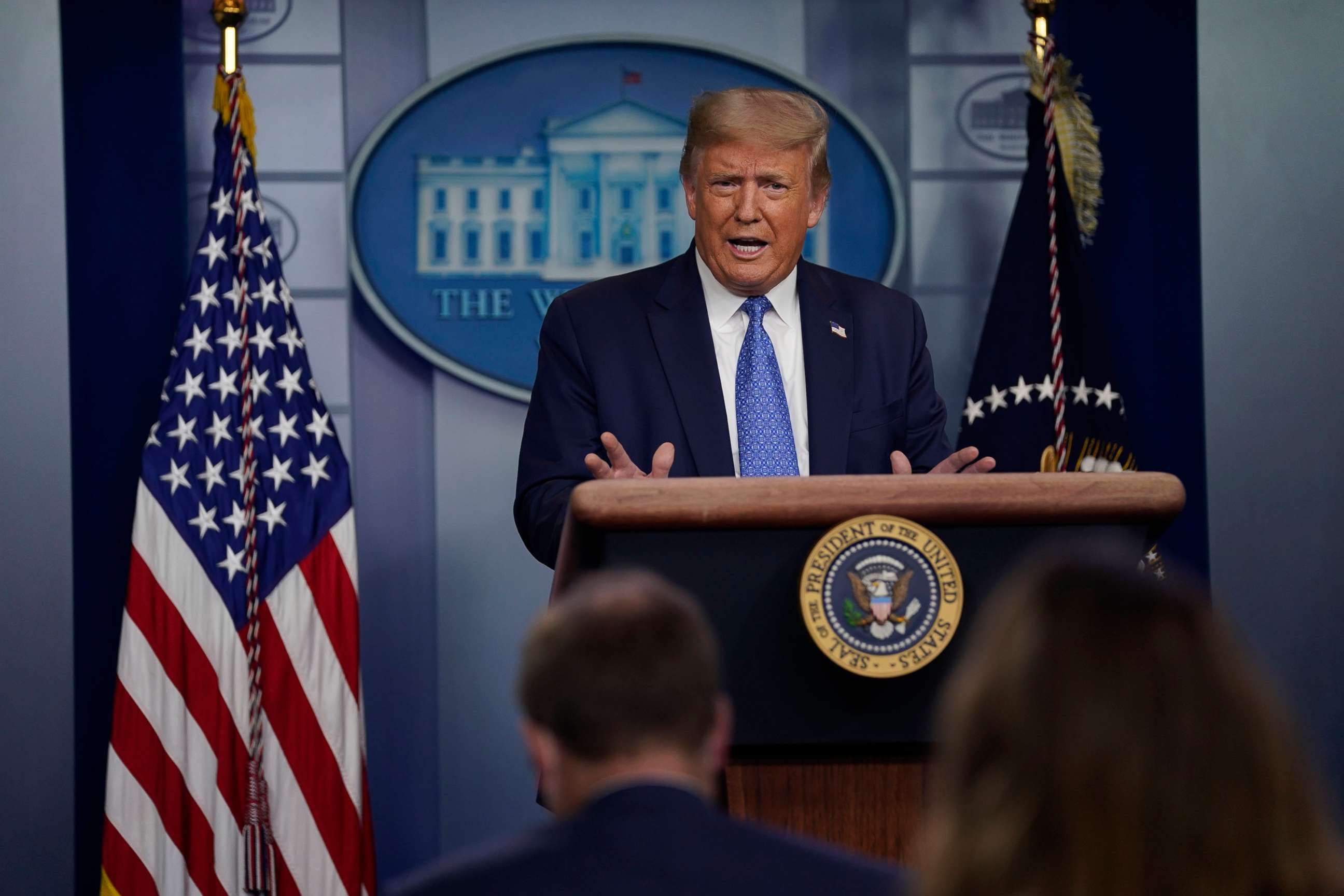
He also took the opportunity to threaten Democratic mayors with federal troop deployments after saying earlier in the day he will "surge" federal agents to the Chicago to combat violence and crime.
When asked if the move is part of a political ploy to distract from his leadership on coronavirus and attack Democrats as Chicago Mayor Lori Lightfoot and other mayors have said, Trump said that "unfortunately" the cities that are in trouble are all run by Democrats.
"Yeah, the cities, unfortunately that are in trouble are all run by Democrats," Trump said. "You have radical left Democrats running cities like Chicago and so many others that we just had a news conference and unfortunately that's the way it is."
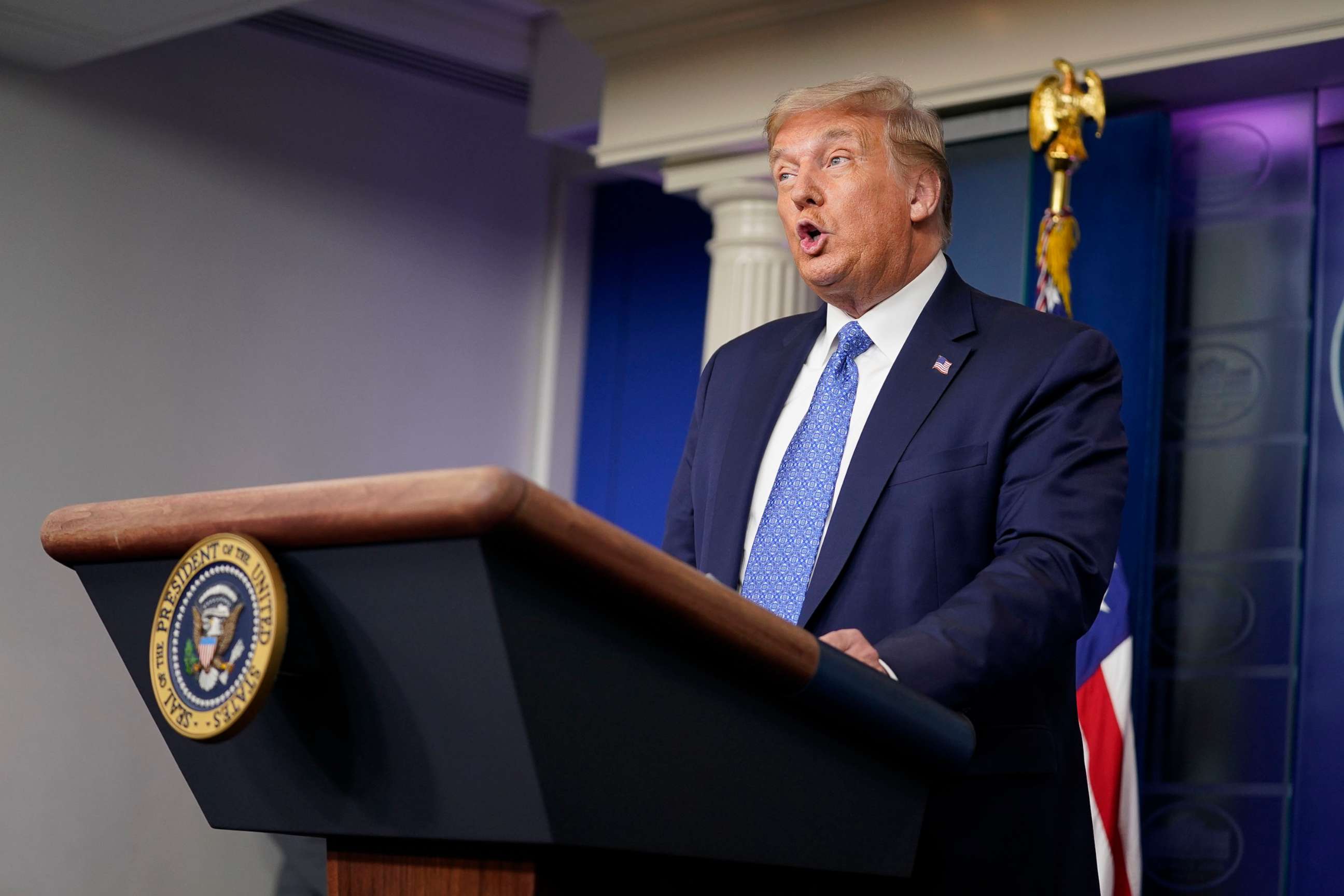
Trump fired back at Lightfoot saying that she is making a "big mistake" for saying that she doesn't want federal law enforcement in the city, adding that Chicago, Philadelphia and Detroit should "call" and say "come on in" to federal law enforcement. The president said that he may not have a choice but to go into those cities.
"Chicago should be calling us and so should Philadelphia and Detroit and others to go in and really help them because when you're losing many people a weekend, many, many people," Trump said. "You see the same numbers as I do. When you're losing these people, they should call us and they should say come on in. And it's incredible to me but they are not doing it. At some point they will. At some point we may have no other choice but to go in."
He attempted to avoid answering why in 2016 he blamed violence in Chicago on former President Barack Obama but is now pointing the finger at local leadership, but eventually said it's because Obama could've "gone into Chicago" but didn't.
"In our case, they don't want us in. We can solve the problem very easily," he said.
At just under 22 minutes, it was one of his shortest press conferences to date.
ABC News' Will Steakin, Anne Flaherty and Evan McMurray contributed to this report.
What to know about the coronavirus:
- How it started and how to protect yourself: Coronavirus explained
- What to do if you have symptoms: Coronavirus symptoms
- Tracking the spread in the U.S. and worldwide: Coronavirus map
Tune into ABC at 1 p.m. ET and ABC News Live at 4 p.m. ET every weekday for special coverage of the novel coronavirus with the full ABC News team, including the latest news, context and analysis.
